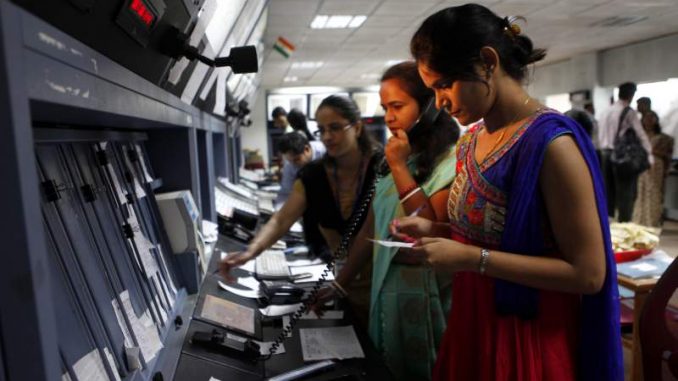
By Lalita Nijhawan
New Delhi : The most effective method in fighting gender discrimination is realizing the difference between the words ‘gender’ and ‘sex’. Where sex is defined as the difference between a male and female dependent upon their biology, gender is a term that is created from socio-economic parameters most commonly known as stereotype.
The advertisement ‘ladke nahi rote’ or ‘boys do not cry’ emphasizes this stereotype very well where Madhuri Dixit is seen at the end of the video sending the message that reform starts from the home, that stereotypes should be broken for gender liberation of the so called weaker sex. The term weaker sex is synonymous with women, crying and emotional fragility is synonymous with women. When we imagine a sphere of occupation whether business or employment the belief is that competition requires aggressive energy, and men tend to fulfill that role with ease. With the advent of feminism and the rise of women in various roles women have proven that brute force is not necessary to climb the ladders of success, all that is required is the capability to complete a task effectively.
Most of India’s employed women are in the labor market, lean strong women who carry piles of bricks on their heads, women that work as domestic help, and women farmers. It’s not uncommon to see women take on such roles, as such tasks were usually reserved for the lower caste and class of Indian society. Unfortunately the pay wage disparity is quite high in these fields as well compared to their male counterparts.
Women have brought forward a high level of achievement bringing down the naysayers, there is a never-ending appreciation and amazement for women who are at the top of their game and they have a riveting response in the general public. The culture of our nation has taught us that women are to be looked upon as mother figures, as protectors and care givers, this reflection is symbolic in many circumstances. Women in high work profiles are looked upon as mother figures, as guardians of the people of this country. It’s a diabolical situation where stereotypes hinder a woman’s progress, yet culture serenades her as the primordial figure.
One of the most overlooked factor regarding women is old-age, the triple threat to most of the Indian population when women who are underprivileged become senior citizens of the nation they face a triple threat: poverty, seniority, and being a female. Statistically women outlive their husbands on an average of 11 years, leaving women that are dependent without no resources, income, or means of livelihood. The basic necessities hierarchy that should be fulfilled in Maslow’s hierarchy is snatched away, with bare minimum interference or support from the government.
A major population of India is living below the poverty line, a family earning less than Rs. 27,000 per year i.e. Rs. 2200 per month is believed to be poor. Whichever family crosses this mark is not believed to be in poverty. In 2012 22% of the India population was below the poverty line, yet the World Bank calculated that 276 million people lived below $1.25 per day. A bottle of clean water costs Rs. 20, two to three bottles of clean water a day will result in the emptying of pockets of the underprivileged. If we bring women into the equation, with their lack of knowledge regarding contraceptives, with the greater amount of reproduction occurring in BPL families, and with the lack of water, food and shelter that these women and mothers face our nation is looking at a dilemma.
The economics of India isn’t only dependent upon the women who are living in urban cities and earning a monthly wage, it is an umbrella that covers women who are housewives and women that work in the labor force of our nation. Human trafficking, prostitution, forced labor, bonded labor, and migration are all evils that are faced by millions annually in India alone. The part that we as citizens can play is ensure that the housemaids and her family are looked after well, that they can support their children by providing them with sound education. As citizens it is our responsibility to take the initiative and prohibit the wage gap and work discrimination. In India the pay given for household chores is very miniscule compared to America or even Europe, therefore it is available in almost every middle class household. As citizens we can raise the standard of living of domestic workers providing them with reasonable pay for a healthy and normal life.
Source: Times of India (blog)

Leave a Reply